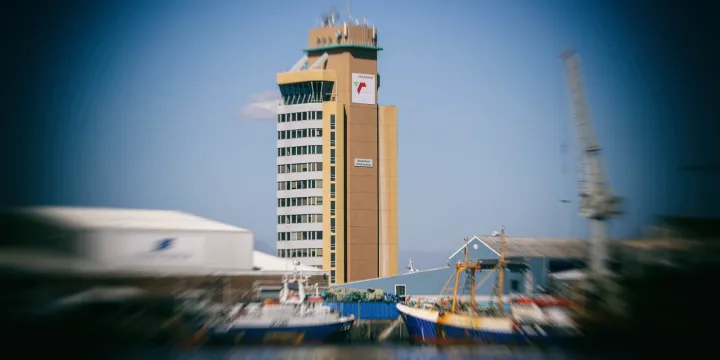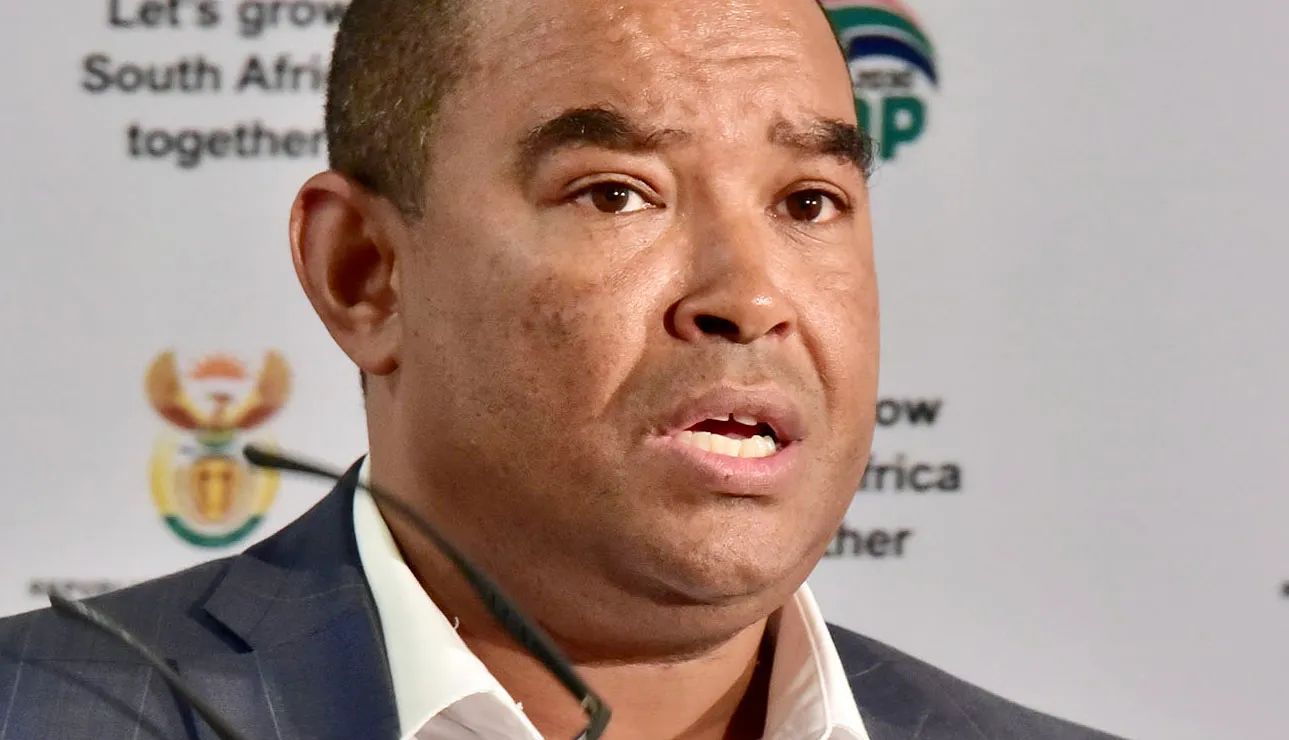TRANSNET TURNAROUND PLAN?
How the Presidency aims to fix South Africa’s collapsing logistics sector

Amid a new sense of urgency over a R500bn loss to the economy, the Cabinet will soon be shown a plan to increase private sector involvement in SA’s railways and ports.
The troubled logistics sector is headed for a fundamental shift if a plan by the Presidency is implemented. The plan would weaken Transnet’s monopoly and promote competition by increasing the private sector’s participation in the running of South Africa’s rail network and ports.
The Presidency and organised business, with help from logistics experts, have drafted a plan that seeks to reverse the dysfunction of the railways and ports in the hands of Transnet.
The dysfunction is estimated to have cost the economy at least R500-billion since 2010 and worsened SA’s fiscal crisis, which is pushing the government to consider raising taxes and cutting expenditure.
Most of the reform proposals included in the 124-page Roadmap for the Freight Logistics System in South Africa are not new, as they complement policy initiatives already approved by the Cabinet.
However, there is now a sense of urgency and greater support for the plan in government circles, including the Treasury, the Department of Transport and the Department of Public Enterprises.
“There’s a broader recognition that South Africa’s logistics crisis is deep and there is no more time to waste,” said a source in organised business who worked on the plan.
Underscoring the logistics crisis are Transnet’s numbers. Volumes in rail operations have declined from a peak of more than 200 million tonnes a year in 2019 to an expected 143 million in 2023 because of mismanagement of the rail network, along with cable theft and vandalism.
Transnet ports are among the world’s worst for efficiency and loading times, scoring in the bottom 10 of the 348 ranked in the World Bank’s latest Container Port Performance Index.
Unlike others before it, the latest logistics plan sets out timelines for everything, including allowing private sector companies access to rail lines, setting up an independent manager of the rail network, rightsizing the network by closing down unprofitable lines and giving private operators concessions on ports and rail routes.
The roadmap is set to be presented to the Cabinet for approval in early November. Transnet’s board is also working on a separate turnaround plan that will focus on the company’s operational and strategic affairs, and complement the Presidency’s roadmap.
No privatisation
There is broad acceptance that, if implemented, the roadmap won’t immediately yield a turnaround because the railways and ports are far gone.
“There might be a turnaround in the next five to 10 years. But the immediate benefit will be seeing confidence returning around the logistics network,” said the business source.
Rudi Dicks, head of the Project Management Office in the Presidency, insisted that the plan should not be viewed as a move to privatise SA’s logistics assets. It should rather be viewed as the government and Transnet embracing the private sector as a partner for delivery, he said.
Collaboration with the private sector has long been proposed but never taken seriously by the government and Transnet management under outgoing executives Portia Derby, its CEO; and Siza Mzimela, the head of freight rail. In cases where Transnet did warm up to private sector players, the incentives for their participation were not attractive.
For example, Transnet failed in 2022 to auction rail slots for the Durban-Johannesburg container route and the route from Kroonstad to East London. A successful auction would have allowed private sector players to run trains independently and also invest in Transnet’s infrastructure to improve it.
However, Transnet’s offer was flawed: it gave only two-year leases on rail slots. Private sector companies wanted at least 10 years, in view of the large investments they would make in equipment such as locomotives, which could last 30 years. The Presidency’s plan now recognises that private players need to be given a longer period.
Reform proposals
Ports and the rail network are considered to be national assets and are natural monopolies that cannot be duplicated. Transnet both owns the infrastructure and determines who uses it. The Presidency’s fix-it plan finds this to be a problem because it has “to a large extent prevented competitive forces from reaching these markets”.
Transnet will join forces with the private sector to invest in locomotives to address shortages. A state-owned leasing company will be set up to make a fleet of locomotives available to private sector players.
The private sector will be allowed to run port corridors under long leases.
The plan still sees Transnet as playing a central role in the ports and rail network. “Transnet will act in a manner that enables globally competitive supply chains, facilitates industrialisation, and crowds in [encourages] private resources,” the plan reads.
Mesela Kope-Nhlapo, the CEO of the African Rail Industry Association, said capable management would have to be appointed at Transnet for any logistics plan to work. She also recommended bringing back about 450 experienced engineers, financial managers and logistics professionals who were retrenched in 2021 in a drive to cut costs. DM
This story first appeared in our weekly Daily Maverick 168 newspaper, which is available countrywide for R29.





















 Become an Insider
Become an Insider
This crisis is a decade in the making and only now are ”plans” being made. Always future tense – no grasping of critical matters. No foresight, only the same repetitive inaction.
“Amid a new sense of urgency over a R500bn loss to the economy, the Cabinet will soon be shown a plan to increase private sector involvement in SA’s railways and ports.”
Kleptocommies running into a brick wall of reality. Luckily they have only robbed two generations of their future.
Recently Ramaphosa has increasingly admitted that the ANC has failed South Africa, and yet we see this refusal to privatise, the drive for more state control (eg the proposed NHI), and the continuation of cadre deployment instead of finding competent people. The private sector involvement, as proposed here, will be firmly under the control of the Transnet executive, who are all senior ANC members. I hope I am wrong, but I can’t help but be suspicious that this is only being accepted by the ANC because with Transnet under close scrutiny by the media and Treasury, trough-feeding will be much easier if lucrative contracts are awarded (under direction of the ANC via the Transnet Board) to new companies set up by ANC-connected parties.
The article quotes a loss of R 500 billion. It would be interesting to see the calculations leading to this figure. I think it is probably actually much higher.
For example, does the R 500 billion include:
1. Losses of foreign investment and income. How many resources mining projects have not proceeded because of logistics difficulties? How many contracts for supply of resources have not been concluded, or have been cancelled, because of high potential for supply delays? This could easily run into R hundreds of billions more.
2. Costs related to the roads infrastructure due to trucks replacing rail freight. SANRAL has a budget this year of R350 billion. How much of that budget goes into repair of damage caused by trucks (carrying Zambian copper, Mpumulanga coal, various bulk resources, major import and export loads, etc) on the roads because of the failure of Transnet freight? What is the cost to the rest of the economy of the rapid increase of truck traffic? On various trips I have made over the years, I have recorded delays caused by trucks (slow trucks, broken down trucks, road repairs due to heavy truck traffic, etc). The calculated time cost to me of those delays is between R0-40 to R0-50 per kilometer. Multiply that by the millions of kilometers driven on South African roads every year and add the SANRAL repair costs, and we have a further loss to the economy of R hundreds of billions every year.
This is like closing the door when the horse has bolted ! It has taken 30 years for the government to accept there has to be private company involvement in running large enterprises. If only they had done this earlier, we wouldn’t be in the mess we are in now. Putting heads in the sand never solved any problems.
Their heads were and remain firmly stuck in their exhaust ports and they aren’t coming out anytime soon as they are too high on their own supply to know it.
At all costs Ramaphosa’s input must be kept at a minimum. His spineless reliance on ANC ‘collective’ ideology has been a major factor in his dithering style of non-governance. Clear heads and the need to make hard decisions in reviving our once excellent rail and port logistics is of paramount importance. Corporate and mining leaders have the foresight and business acumin to achieve this. Leaving it to even a small percentage of ANC committee mentality’ will result in failure.
This is a ‘no-brainer’ – appoint a Minister of Trains
Another day, another plan and the pile of plans gets ever higher as the last plan is piled on top of all the other plans. And the incompetent people who are the root cause of the catastrophic collapse of our logistics sector sit, largely doing nothing and getting paid eye popping salaries. Until another plan comes which they guaranteed to stuff up…yet again. It’s the stuff of tragic comedy!!@